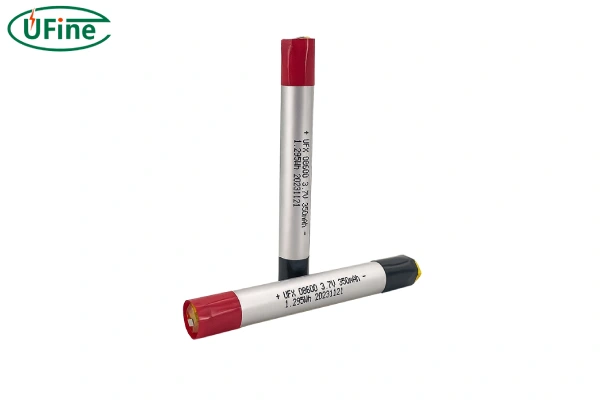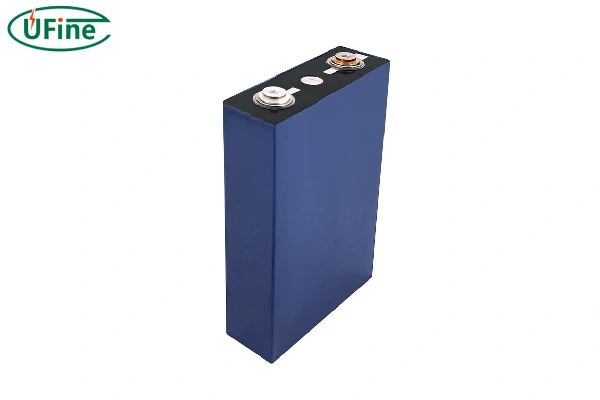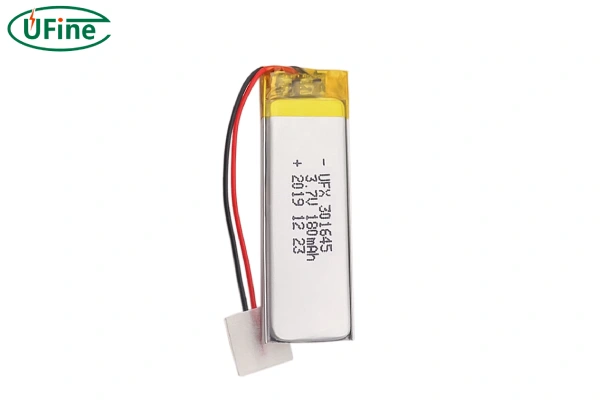Lithium-ion battery packs have emerged as the frontrunners in the ever-evolving world of portable power solutions, offering unparalleled performance, efficiency, and versatility. Among the most versatile and widely adopted options in this realm are 12V lithium-ion battery packs.
These compact yet powerful energy storage solutions have revolutionized how we power our devices, equipment, and systems across various industries.
Part 1. Understanding 12V lithium-ion battery packs
The individual lithium-ion cells are at the core of a 12V lithium-ion battery pack, which are carefully arranged and interconnected to provide a 12-volt output. Lithium-ion technology has several advantages over traditional lead-acid batteries, including higher energy density, longer lifespan, and reduced maintenance requirements. These features have made 12V lithium-ion battery packs an increasingly popular choice for various applications.
Part 2. 12V Lithium-ion battery pack types
12V lithium-ion battery packs come in a range of different cell types, each with its unique characteristics and advantages:
1.Cylindrical Cells
Cylindrical lithium-ion cells are the most commonly used format in 12V battery packs. These cells offer a good balance of energy density, power output, and safety, making them a versatile choice for many applications.
2. Prismatic Cells
Prismatic lithium-ion cells are rectangular and designed to maximize the available space within a battery pack. They often provide higher energy density and improved thermal management than cylindrical cells.
3. Pouch Cells
Pouch-style lithium-ion cells are lightweight and flexible, allowing more efficient packaging and integration into various applications. Their thin profile and customizable shape make them popular for compact or space-constrained designs.
Part 3. 12V Lithium-ion battery packs structural composition
Beyond the individual cell types, 12V lithium-ion battery packs incorporate various components to ensure safe and reliable operation. These include:
- The cell arrangement and interconnections
- Protective circuitry to monitor voltage, current, and temperature
- Battery management systems (BMS) to optimize performance and prevent overcharging or over-discharging
- Robust enclosures to protect the internal components
The careful engineering of these elements is crucial in delivering the desired performance, longevity, and safety characteristics of the 12V lithium-ion battery pack.
Part 4. 12V Lithium-ion battery packs common capacities
12V lithium-ion battery packs are available in a wide range of capacities, typically 10Ah to 100Ah or more. The choice of capacity depends on the specific needs and requirements of the application:
1. Lower Capacity Packs (1000mAh to 30Ah)
These compact and lightweight packs are well-suited for portable or mobile applications, such as power tools, outdoor equipment, and small electronic devices. They offer a good balance of runtime and portability.
2. Higher Capacity Packs (50Ah to 100Ah+)
Larger 12V lithium-ion battery packs are designed for applications that demand sustained power and extended runtimes, such as recreational vehicles, marine equipment, and off-grid energy systems. These high-capacity packs provide ample energy storage to power heavy-duty loads for extended periods.
Ufine Battery can customize 12V Lithium-ion battery packs of different capacities, sizes, and types according to customer needs. Contact us today to get a quote!
Part 5. Applications
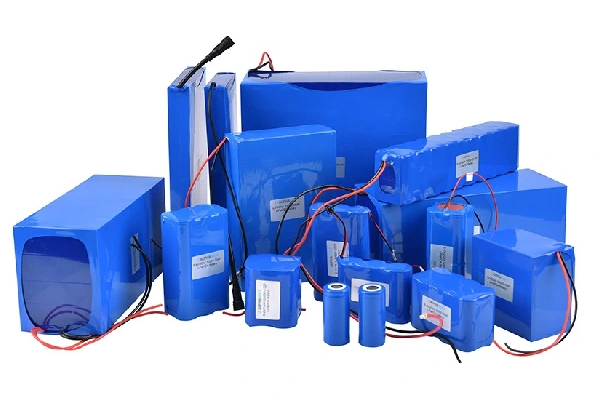
The versatility of 12V lithium-ion battery packs has led to their widespread adoption across a diverse range of industries and applications, including:
1. Recreational Vehicles (RVs) and Campers
12V lithium-ion battery packs are increasingly used in RVs, campers, and other mobile living spaces, providing reliable and long-lasting power for lighting, electronics, and essential appliances.
2. Marine and Boating Equipment
The lightweight, compact, and durable 12V lithium-ion battery packs make them an ideal choice for marine applications, such as powering boats, yachts, and other watercraft.
3. Solar and Off-Grid Power Systems
12V lithium-ion battery packs are well-suited for integration into solar-powered and off-grid energy storage systems, where their high energy density and long lifespan are crucial.
4. Industrial Equipment and Tools
From power tools and equipment to emergency backup systems, 12V lithium-ion battery packs provide the necessary power and reliability for various industrial applications.
Part 6. Lifespan and maintenance
One of the key advantages of 12V lithium-ion battery packs is their exceptional lifespan, often exceeding that of traditional lead-acid batteries. These packs can last several years with proper care and maintenance, providing consistent and reliable performance.
Factors that influence the lifespan of a 12V lithium-ion battery pack include:
- Charging and discharging patterns
- Environmental conditions, such as temperature and humidity
- Proper storage and handling techniques
- Adherence to recommended maintenance schedules
By understanding and implementing best practices for 12V lithium-ion battery pack care, users can maximize the longevity and efficiency of these versatile power sources.
Part 7. How to choose a charger for 12 volt lithium battery pack?
Charging your 12V lithium-ion battery pack requires a specialized charger designed specifically for this battery chemistry and voltage. Here are some key considerations for 12V lithium-ion battery pack chargers:
1. Charging Voltage and Current
The charger must be able to provide the correct charging voltage and current for the 12V lithium-ion battery pack. Typically, these chargers operate in the range of 12.6V to 14.6V and provide a constant current during the initial stage of charging, followed by a constant voltage phase as the battery nears full capacity.
2. Charging Algorithms
Advanced chargers often employ sophisticated charging algorithms to optimize the charging process, ensuring the battery is charged efficiently and safely. These algorithms may include features like trickle charging, temperature monitoring, and end-of-charge detection to prevent overcharging.
3. Charging Modes
Some 12V lithium-ion battery pack chargers offer multiple charging modes, such as standard, fast, or even adaptive charging. These modes allow you to tailor the charging process to your specific needs, balancing charging speed and battery health.
4. Charging Ports and Connectivity
Chargers may provide various charging ports, such as AC mains, DC power inputs, or even USB-C, to accommodate different power sources and charging scenarios. Some chargers also offer features like LCD displays, LED indicators, and wireless charging capabilities.
5. Safety Protections
Reliable 12V lithium-ion battery pack chargers should incorporate robust safety features, such as overcharge protection, overcurrent protection, and temperature monitoring, to prevent damage to the battery pack and ensure safe operation.
Part 8. Conclusion
12V lithium-ion battery packs have emerged as the go-to choice for various applications, from recreational vehicles and marine equipment to industrial tools and off-grid power systems. Their unparalleled combination of power, efficiency, and longevity make them a transformative technology that continues to redefine the way we approach portable energy solutions. By understanding the different types, capacities, and applications of 12V lithium-ion battery packs, you can unlock their full potential and harness their benefits for your needs.
Related Tags:
More Articles
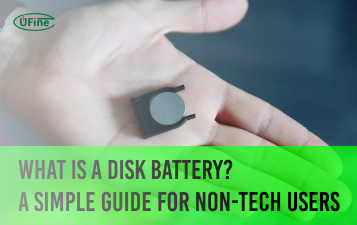
What Is a Disk Battery? A Simple Guide for Non-Tech Users
A disk battery is a small, round cell used in watches, remotes, and other electronic devices. It delivers steady power for compact, low-drain devices.
What Battery Powers a Space Heater?
Discover the type of battery that powers space heaters and learn how to choose the right one for efficient heating in your home or office.
What Is an LR14 Battery? Learn About This C-Size Cell
The LR14 battery, also known as a C battery, delivers steady power. Learn its specs, uses, lifespan, and how it compares to other battery types.
Watch Battery Dimensions Chart: Sizes, Voltages, and Equivalents Explained
Understanding watch battery dimensions helps you choose the right size, voltage, and equivalent model to keep your watch running safely and smoothly.
How Long Can You Rely on Battery-Powered Generators?
Discover battery generator runtime & lifespan factors. Learn how to maximize performance and choose the right power solution.
